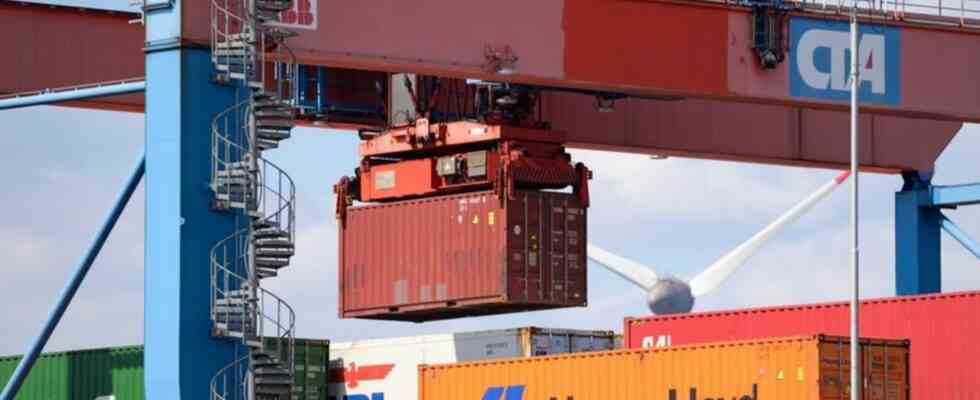KfW survey
A quarter of medium-sized companies have increased their prices
Above all, medium-sized companies that purchase raw materials, preliminary products or services from abroad are particularly affected. Photo: Jonas Walzberg/dpa
© dpa-infocom GmbH
Germany’s medium-sized companies are struggling with delivery bottlenecks. The war in Ukraine aggravates the situation. The customers of many companies also feel this.
Many medium-sized companies in Germany are forced to make price adjustments due to supply bottlenecks and rising energy prices.
Every fourth medium-sized company (24 percent) has made its products or services more expensive, according to data collected by the KfW development bank in March. According to the KfW, 42 percent of the companies stated that they were affected by delivery bottlenecks.
“Small and medium-sized companies have been hit with full force,” said KfW Chief Economist Fritzi Köhler-Geib at the presentation of the “KfW Internationalization Report”. Uncertainty has increased: in the meantime, significantly more companies than in the autumn are assuming that the supply bottlenecks will last for more than a year.
Eight out of ten medium-sized companies are struggling with delivery bottlenecks
According to the development bank, about a third (29 percent) of all 3.8 million medium-sized companies in Germany purchase raw materials, preliminary products or services from abroad. They are particularly affected by the disruptions in the global value chains. If you only look at these companies, eight out of ten would have to struggle with delivery bottlenecks. “International value chains still offer cost advantages for companies, but these advantages are shrinking with the supply chain difficulties,” said Köhler-Geib.
The war in Ukraine is exacerbating the situation. “It is true that hardly more than two percent of German medium-sized companies export to Russia and even less to the Ukraine,” explained Köhler-Geib. “However, a severe economic downturn in Europe would have a noticeable impact on foreign demand. Imponderables also remain with a view to the corona pandemic. The year 2022 should therefore also be challenging for the internationally oriented small and medium-sized companies in Germany.»
According to KfW estimates, foreign business should have recovered somewhat in the past year, including among SMEs. Based on the surveys, the development bank expects foreign sales of companies to increase by a good six percent to EUR 566 billion compared to the previous year. “We’re still below the pre-crisis level,” said Köhler-Geib.

